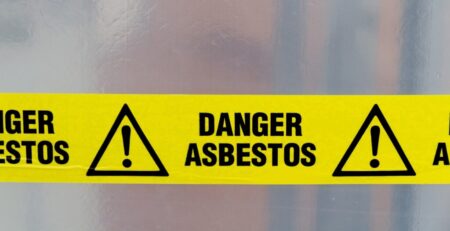9 Common SEO Mistakes And How to Avoid Them
Search Engine Optimization is a game-changer for any company size, be it a small startup or a well-reputed business. It is one of the progressive and efficient techniques to increase your sales, and revenue and attract customers creating awareness about your product or service.
Meanwhile, it is very hard to stand out online among millions of companies and constantly changing algorithms, especially if you are not familiar with SEO techniques. As a result, businesses make the same mistakes missing opportunities for growth. Let’s start with the understanding of what search engine optimization means and what are some common SEO mistakes to avoid.
What is SEO?
Search Engine Optimization, in short SEO, is a process of growing a website’s traffic organically. In simple terms, SEO allows website pages to become more visible online, and as a result, it gives an opportunity for people to find your business on Google faster.
SEO consists of three parts:
-
Technical SEO
It is the process of optimizing a website for Google search algorithms. It means your website is fast, mobile-friendly, and easy to navigate. You need to ensure that your website code is clean and formatted properly.
-
On-page SEO
The main elements of a successful on-page SEO include keywords analysis, content strategy, tags, meta descriptions, image optimization, and internal linking.
-
Off-page SEO
Promoting website content through building links is the main task when it goes to off-page SEO. An effective link-building strategy includes social media marketing, guest posting, and crowd marketing.
As far as you can see, SEO requires lots of work to be done. Most ‘I-can-do-it-myself’ companies spend their days engaged in activities making the same mistakes. As a result, their website traffic doesn’t grow and they give up on this powerful marketing channel.
9 Most Common SEO mistakes And How To Avoid Them
There are some reasons why SEO might not be working for you. So don’t panic, even people doing SEO for years can make these mistakes.
1. Absence of Keywords in URLs
Having a primary keyword in the URL boosts web page visibility and impacts your page ranking in general. A keyword gives a signal to the search engine what the page is all about.
However, it is not only about a keyword, but the URL structure in general.
- Keep your URL short and clear
- Remove dates from the URL
- Do not stuff URLs with keywords not to be considered spam
It is a good practice to use 1-2 keywords in your URL that is relevant to the page. Keywords stuffing means forcing too many keywords without logic that negatively impact your readability score and SEO.
2. No Tags and Meta description
The Meta Description is a snippet of the text that appears in search engine results under your title. It is an HTML tag that helps google understand what each page on your website is about. And here are the requirements on how to format it properly:
- It should be short and clear (155 characters)
- It should contain a call to action
- It should be unique
- It should tell about your content
- It should contain a focus keyword
3. Not optimized title
One common mistake in SEO is not focusing on title optimization. It is critical to understand that the title tags help search engines to understand the context.
Moreover, a catchy title attracts more visitors to your website and can boost traffic.
Here are some basic title optimization rules you should consider:
- It is recommended to use no more than 50-60 characters
- Make it catchy and clear
- Use numbers when possible
- Use the primary keywords (but now too many)
- Keep it unique
4. Poor backlink strategy
Poor backlink strategy is one of the common SEO mistakes. Backlinks are created when one website links to another, and they help search engines to understand the relationships between different websites. In general, the more high-quality backlinks a website has, the better its chance of ranking highly in SERPs. However, it’s not just the quantity of backlinks that is important. The quality is even more crucial. A backlink from a high-quality, relevant website is worth more than a backlink from a low-quality or less relevant site.
5. Wrong page redirects
URL redirecting is a technique used to improve the experience for users attempting to access your website. There are three most commonly used types of redirects:
- 301 redirect is used when a page has been permanently moved to a new location
- 302 redirect is used when a page is only temporarily unavailable
- 307 redirect is used for sensitive information accessed over HTTPS
There are also other types of redirects, such as conditional and meta refresh tags. Each redirect has its benefits and drawbacks, so it’s important to choose the right one for your needs. By understanding the different types of URL redirects, you can ensure that users can always find the content they are looking for on your site.
6. No XML sitemap
An XML sitemap is highly important for SEO as it helps search engines understand the structure of the website content. Creating a sitemap will help you get your website indexed faster.
7. Lack of focus on the content quality
Rephrasing, plagiarizing, copying web content, or making duplicates, all of this refers to the biggest SEO mistakes. Google loves high-quality original content that answers users’ queries and ignores duplicated pages.
SEO is not only about keyword usage, titles, and headings but also about the content and user experience. That is why it is important to focus on the quality, and authenticity of the information, linking to the authorized pages that prove your information is verified and authentic.
8. Ignorance of Google Analytics
You cannot see the progress without tracking the results and analyzing the data. Google Analytics provides detailed reports on your website data, users’ behavior, interests, and engagement with the content.
One of the most important things to track is your page views. It will give you an idea of how many people are visiting your site and which pages are the most popular. You can also track other things like bounce rate and time on site.
Once you understand your website performance, you can start experimenting with different ways to improve your website and get higher rankings on Google.
9. Lack of Internal linking
A lack of internal linking can hurt your SEO. Search engines use links to crawl the web and understand the relationships between different pages. When they encounter a page with no links leading to it, they assume that it’s not important and is less likely to show it in search results.
So if you want your website to be well indexed and rank highly in search results, make sure you regularly add links to your new and existing content. It may seem like a small thing, but it can make a big difference in how visible your site is to potential visitors.
Conclusion
Are you making any of these mistakes?
If you can avoid these SEO mistakes, your business will see a significant increase in organic traffic.
At Ubba Agency, we have the experience and expertise to get your website ranking high on search engines and generate more leads. Contact us today to learn more about our services!










